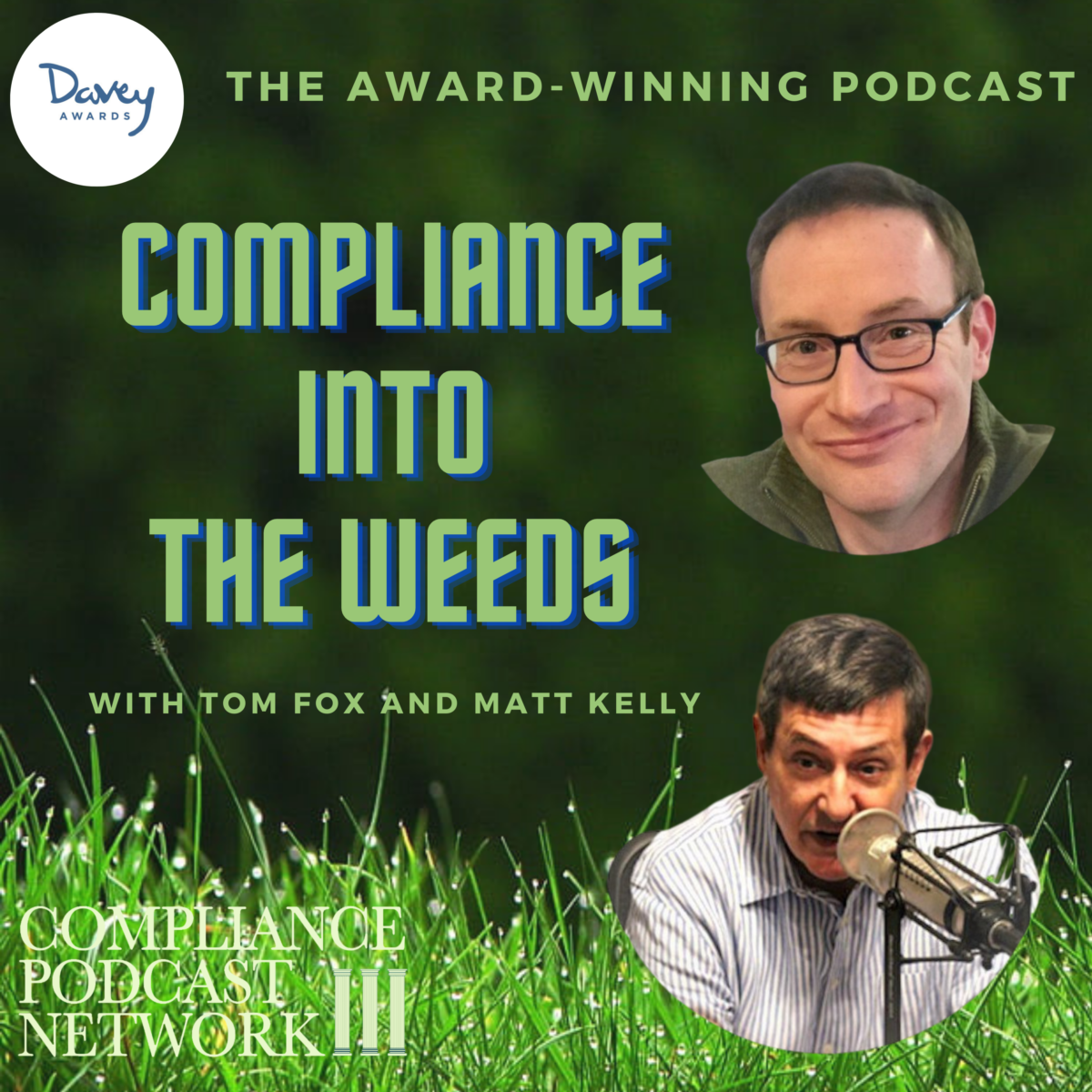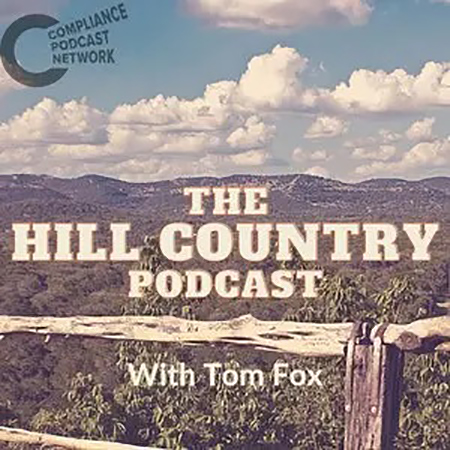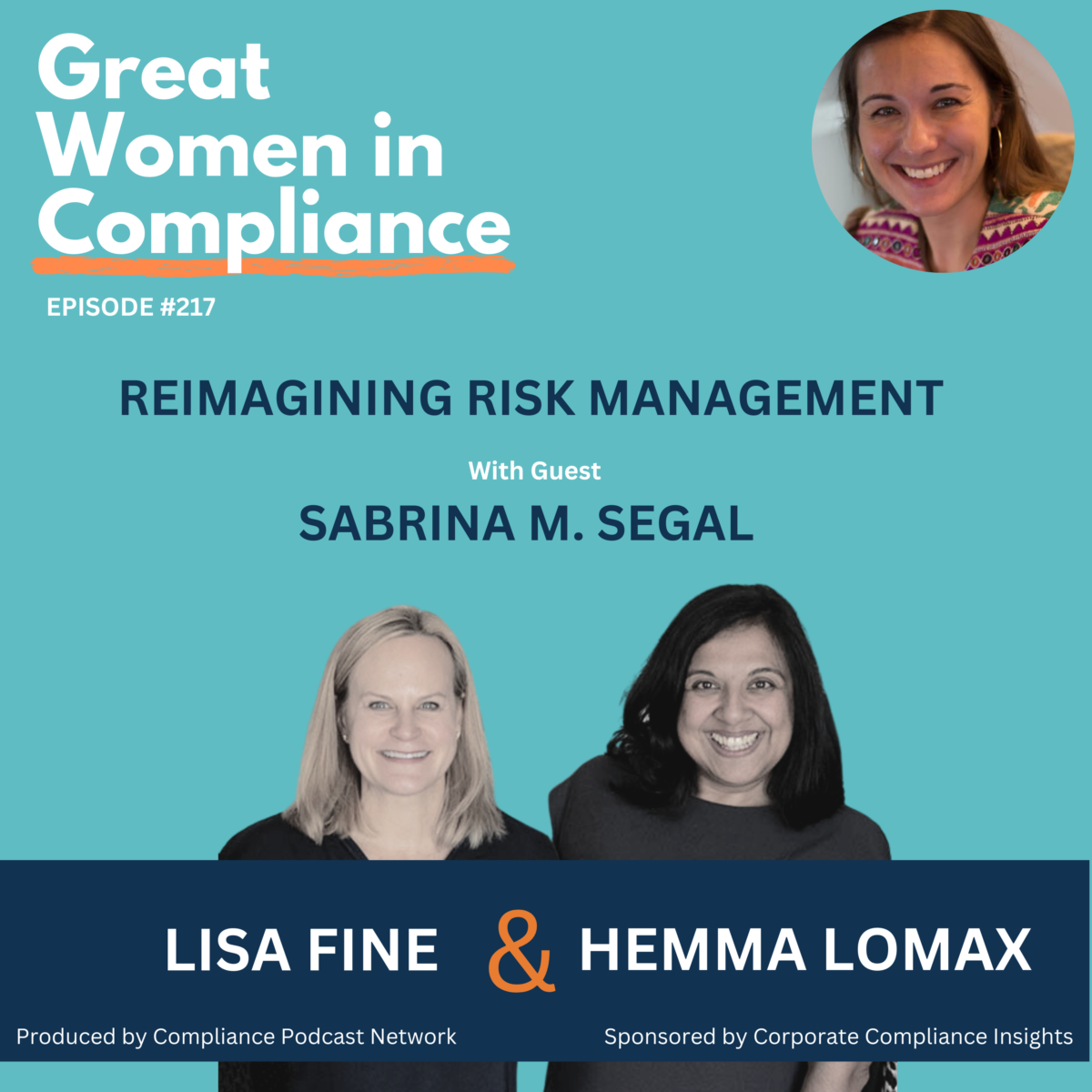Compliance and risk management are crucial aspects of any organization; the third sector is no exception. In this week’s episode of Great Women in Compliance, hosted by Hemma Lomax, she visited with Sabrina Segal on compliance and risk management in the third sector. The third sector, which includes charities and nonprofits, operates in areas where the private sector doesn’t see value and where government regulations have failed. As a result, risk management becomes even more crucial in these high-risk environments with limited resources.
Sabrina Segal is a seasoned third-sector integrity risk and compliance advisor with a legal background, currently based in Rwanda as part of an international development and humanitarian assistance team. Her perspective on compliance and risk management in the third sector is that it is inherently high risk due to its operation in areas where the private sector does not see value and where government regulations have failed. Segal believes that the current risk management approaches, which are quantitative-heavy and designed for industries like finance and oil and gas, are not suitable for the third sector, which is more qualitative-heavy.
Drawing from her experiences, she emphasizes the need for bespoke approaches tailored to the specific needs and constraints of small and medium-sized charities and nonprofits. Segal has developed a strategy called objective-centered risk management for the third sector, which focuses on achieving objectives, identifying threats and opportunities, and directly influencing decision-making, viewing her work in compliance and risk management to improve organizations’ overall programming and impact in the third sector.
Segal advocates for an objective-centered approach to risk management in the third sector. This approach focuses on achieving objectives rather than simply creating static risk registers and matrices. By tying risk analysis directly to objectives, organizations can better understand the impact of uncertainty on their goals and make informed decisions. This approach also integrates risk management into project management, recognizing the dynamic nature of risks and their effect on objectives.
Compliance and risk management are essential for any organization, but they are significant in the third sector. Non-profit organizations often rely on public trust and funding, making it crucial to maintain a strong reputation. Compliance ensures that organizations adhere to legal and ethical standards, while risk management helps identify and mitigate potential threats to the organization’s mission and sustainability.
Another approach highlighted by Segal is Active Monitoring and Mitigation. This approach involves identifying and addressing threats and opportunities to achieve objectives. By mapping the causes of these threats and opportunities, organizations can implement active monitoring or mitigation steps to minimize risks and maximize opportunities.
One of the challenges faced by the third sector is the lack of quantitative data for risk analysis. While the finance or oil and gas industries can rely on quantitative tools such as Monte Carlo simulations or Bayesian statistics, the third sector often deals with qualitative data and dynamic systems. Segal emphasizes the need for bespoke approaches that work well for charities and nonprofits, tiny and medium-sized organizations with limited resources. She suggests using quantitative tools where possible and creating data trust in the third sector to improve risk management advice. Organizations can identify and assess potential risks more effectively using data-driven approaches. Risk matrices, statistical analysis, and predictive modeling can help quantify risks and prioritize them based on their likely impact. This allows organizations to allocate resources efficiently and make informed decisions to mitigate risks.
Active monitoring and mitigation involve continuously monitoring potential risks and proactively addressing them. Rather than waiting for risks to materialize, organizations in the third sector should adopt a proactive approach. This includes regular assessments, monitoring key performance indicators, and implementing control measures to prevent or minimize the impact of identified risks. By actively monitoring and mitigating risks, organizations can ensure the smooth operation of their programs and protect their stakeholders.
Risk analysis should be closely tied to an organization’s objectives in the third sector. By aligning risk analysis with objectives, organizations can prioritize risks that have the most significant potential to hinder the achievement of their mission. This involves identifying the risks that could impact the organization’s ability to deliver its programs or services. By linking risk analysis to objectives, organizations can develop targeted strategies to manage and mitigate these risks, ensuring the successful fulfillment of their mission.
In addition to risk management, compliance is another critical aspect of the third sector. Segal highlights the role of lawyers and compliance professionals in ensuring restorative justice and breaking the cycle of vengeance. By including all stakeholders and giving voice to the voiceless, lawyers and compliance professionals contribute to the success of restorative justice initiatives and create durable solutions in post-conflict environments.
Overall, compliance and risk management in the third sector require tailored approaches that consider charities and nonprofits’ unique challenges and limited resources. By focusing on objectives, actively monitoring and mitigating risks, and considering unforeseen risks, organizations in the third sector can improve their programming and significantly impact the communities they serve.






